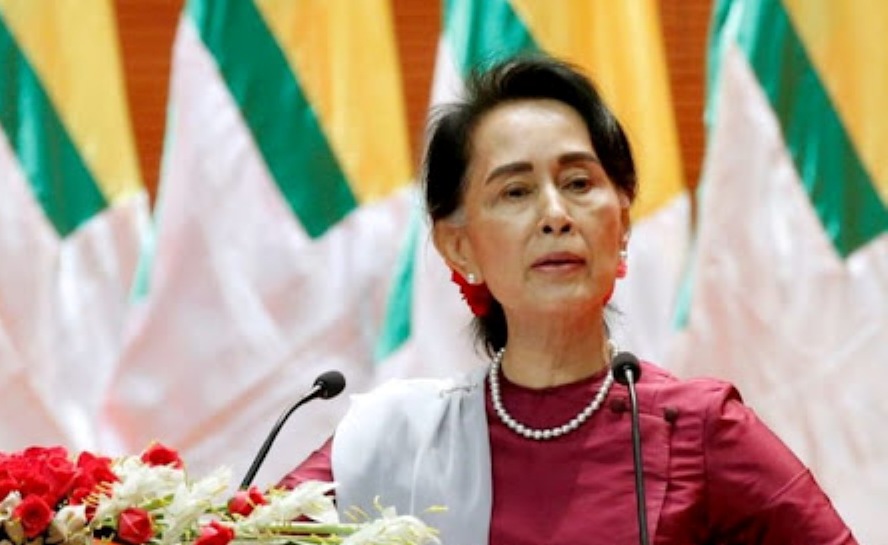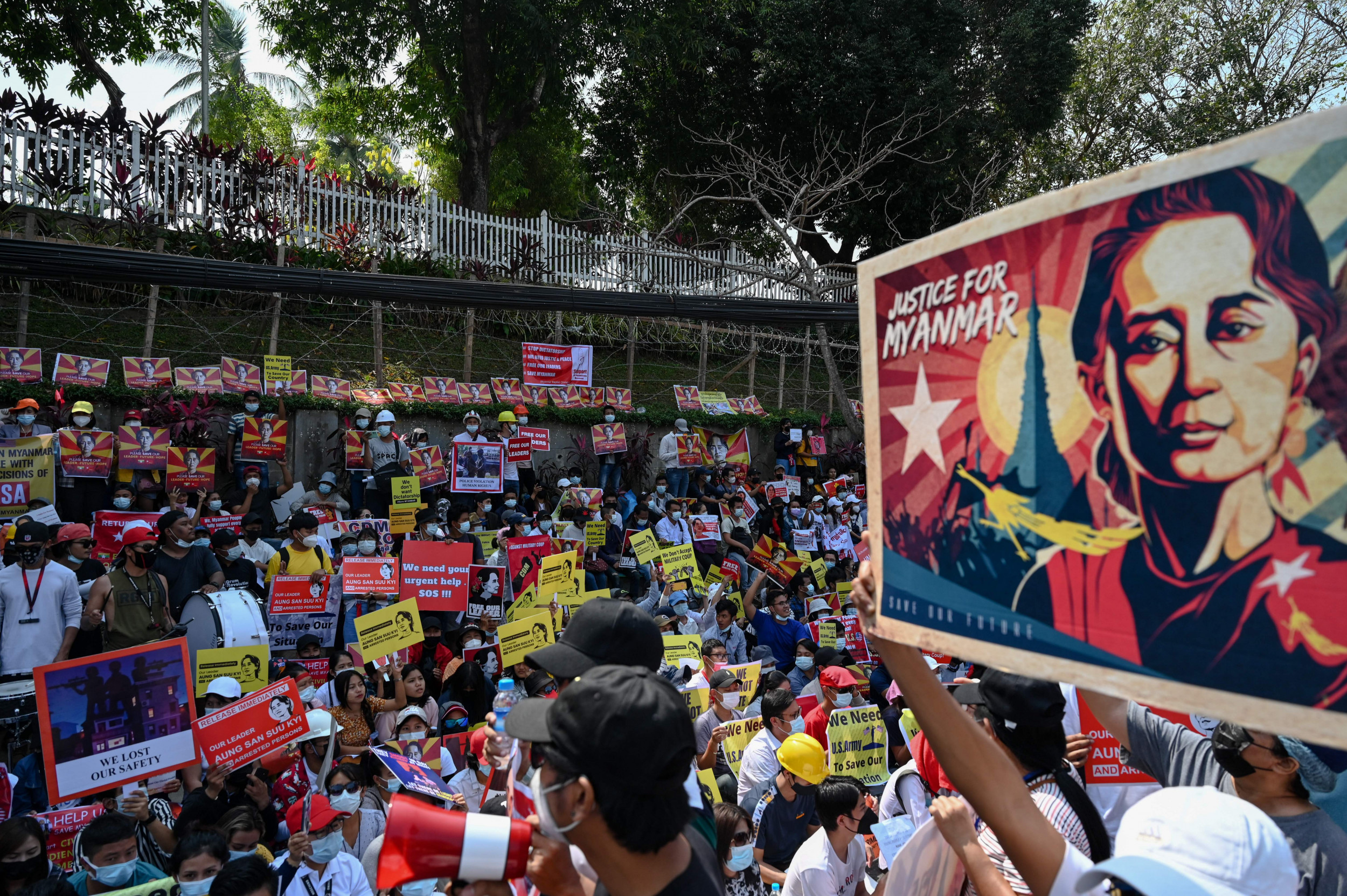Thailand’s outgoing foreign minister travelled to Myanmar in secret, meeting with imprisoned elected leader Aung San Suu Kyi only days before a regional summit focused on the country’s crisis.
Don Pramudwinai acknowledged the visit to reporters on the sidelines of the Association of Southeast Asian Nations (ASEAN) foreign ministers meeting in Jakarta on Wednesday, but declined to elaborate.
He described it as “an approach of Myanmar’s friends who want to see a peaceful settlement.”
According to Aljazeera, Don flew into Naypyidaw on a special military plane and returned home the same day after meeting with Myanmar’s military council, which included Min Aung Hlaing. It made no mention of him seeing Aung San Suu Kyi, who was detained by the generals as they seized power in February 2021 and has since been imprisoned following a series of sham trials.
Thailand’s outgoing army-backed government has sparked controversy in recent months, despite their failure to make headway on a unanimously agreed ASEAN five-point plan to address the turmoil prompted by the coup.
Don is reported to have visited Naypyidaw in April and to have planned a meeting last month to “re-engage” with the generals who have been barred from attending the group’s top summits owing to their inability to follow the peace plan.
Thailand’s foreign ministry acknowledged in a statement that the travel took place on Sunday and that Don spent “over an hour” with Aung San Suu Kyi, who is now 78.
Don assured the ministers in Jakarta that she was in good physical and mental condition. “She encouraged conversation,” Don stated. Despite being part of the five-point plan, the military has rebuffed all diplomatic requests to meet with Aung San Suu Kyi during the last two years.
Don’s travel, according to Aaron Connelly, a Southeast Asia researcher at the International Institute for Strategic Studies in Singapore, weakened ASEAN’s efforts to resolve the problem. Myanmar joined ASEAN 25 years ago under a previous military dictatorship.
“A diplomatic process centred on Myanmar’s neighbours, rather than ASEAN, will be more sympathetic to the junta,” tweeted Connelly. “Its neighbours believe the junta will eventually triumph and want to hasten its pacification of the countryside and international legitimization.”
Retno Marsudi, Indonesia’s Foreign Minister, emphasised the need of ASEAN unity, telling her peers on Wednesday that “only a political solution [would] lead to a durable peace.” On Wednesday afternoon, the group was hammering out a consensus position on Myanmar.
The US, whose senior diplomat Antony Blinken will also attend the Jakarta meetings, has already stated that it intends to use the gathering to persuade ASEAN to retain its firm position.
The top State Department official for East Asia, Daniel Kritenbrink, told reporters last week that Myanmar would be “one of the key issues” covered in Jakarta.
Without attacking Thailand, Kritenbrink stated that the US expected the bloc to “continue to downgrade Myanmar’s representation in the ASEAN ministerial”.
“We also look forward to finding ways to increase pressure on the regime in order to compel it to end its violence and return to a path of democracy,” he said. Don’s travel was not covered in Myanmar’s official media.
Myanmar’s Aung San Suu Kyi
Aung San Suu Kyi is a prominent figure in Myanmar (formerly known as Burma) and a Nobel Peace Prize laureate. She was born on June 19, 1945, in Yangon, Myanmar. Aung San Suu Kyi’s father, Aung San, was a national hero who played a crucial role in the country’s struggle for independence from British colonial rule.
Aung San Suu Kyi spent much of her early life abroad due to her father’s diplomatic work, but she later returned to Myanmar in 1988 to take care of her ailing mother. At that time, Myanmar was under military rule, and the country was experiencing widespread civil unrest and pro-democracy movements.
Inspired by the growing democratic movement, Aung San Suu Kyi emerged as a leader and advocate for democracy in Myanmar. She co-founded the National League for Democracy (NLD) in 1988 and became its leader. The NLD aimed to bring about political reforms and establish a democratic government in Myanmar.
Aung San Suu Kyi’s nonviolent resistance to the military junta led to her house arrest in 1989. She remained under house arrest for a total of 15 years over the next two decades. Despite her confinement, she continued to be a symbol of hope and resistance for the people of Myanmar.
In 1991, Aung San Suu Kyi was awarded the Nobel Peace Prize for her peaceful and nonviolent struggle for democracy and human rights. Her commitment to democratic principles and her perseverance in the face of adversity gained her international recognition and support.
In 2010, the military junta in Myanmar began to loosen its grip on power and initiated a series of political reforms. Aung San Suu Kyi was released from house arrest in 2010, and her party, the NLD, participated in the country’s parliamentary elections in 2012. The NLD won a majority of the seats, and Aung San Suu Kyi became the de facto leader of Myanmar.
However, her leadership was not without controversy. During her time in power, Aung San Suu Kyi faced criticism for her handling of the Rohingya crisis, a violent conflict that led to the displacement and persecution of the Rohingya Muslim minority in Myanmar. Many accused her government of human rights abuses and failing to protect the Rohingya population.
In 2017, a military crackdown on the Rohingya people resulted in widespread violence and forced displacement, leading to international condemnation. Aung San Suu Kyi’s response to the crisis drew criticism from human rights organizations and the international community, tarnishing her reputation as a champion of human rights and democracy.
In light of the Rohingya crisis, Aung San Suu Kyi faced legal consequences. In 2019, she defended Myanmar at the International Court of Justice against accusations of genocide. However, in January 2020, the International Court of Justice ordered Myanmar to take immediate measures to prevent genocide against the Rohingya and preserve evidence of past atrocities.
In February 2021, the military in Myanmar staged a coup, ousting the civilian government and detaining Aung San Suu Kyi and other political leaders. Since then, Myanmar has experienced widespread protests and violence as the military junta suppresses dissent and maintains control over the country.
Aung San Suu Kyi’s political journey has been complex and polarizing, with her image shifting from an icon of democracy and human rights to a figure criticized for her inaction and silence in the face of human rights abuses. Her legacy continues to be a subject of debate and reflection in Myanmar and the international community.






